
NÛN Foundation for Education and Culture Introduces the Side by Side Scholarship Program!
"i and the person who looks after an orphan and provides for him will be in paradise like this." ...
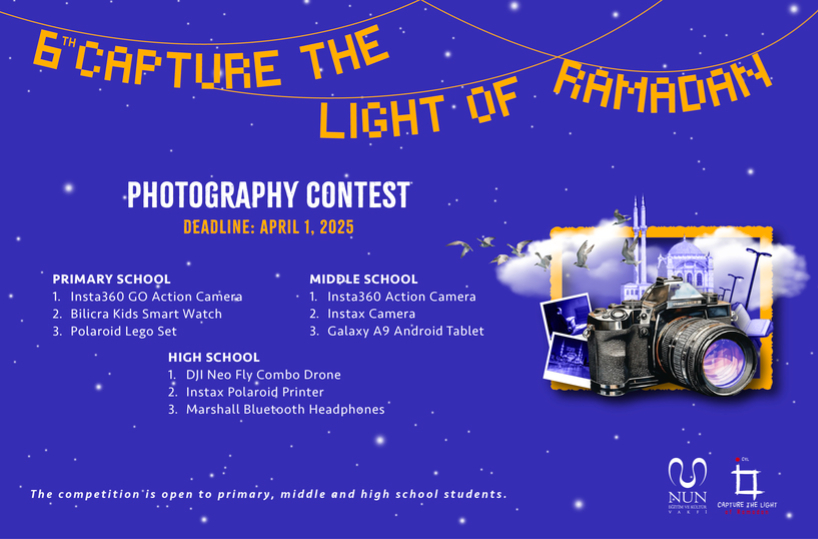
Capture the Light of Ramadan!
the month of ramadan is back with all its excitement. capture the light photography contest starts...
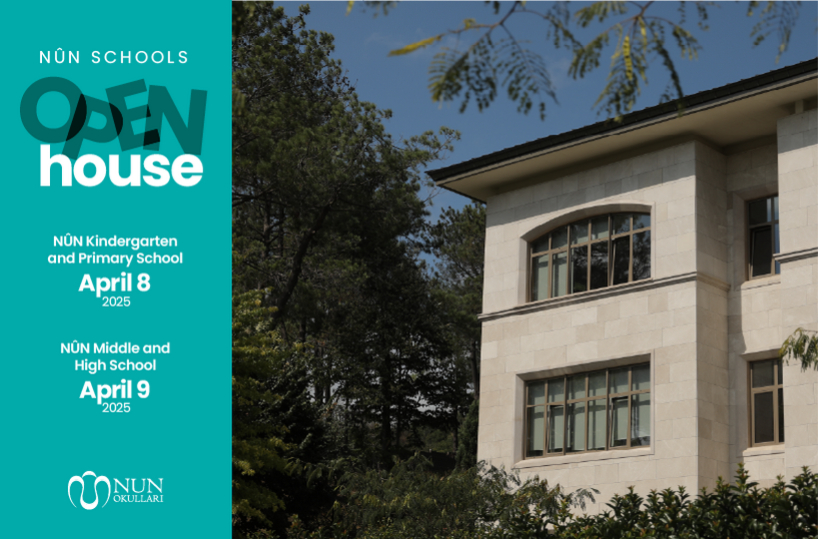
Open House at NÛN Schools Starts!
discover nûn schools at our open house events to experience our unique educational philosophy teac...
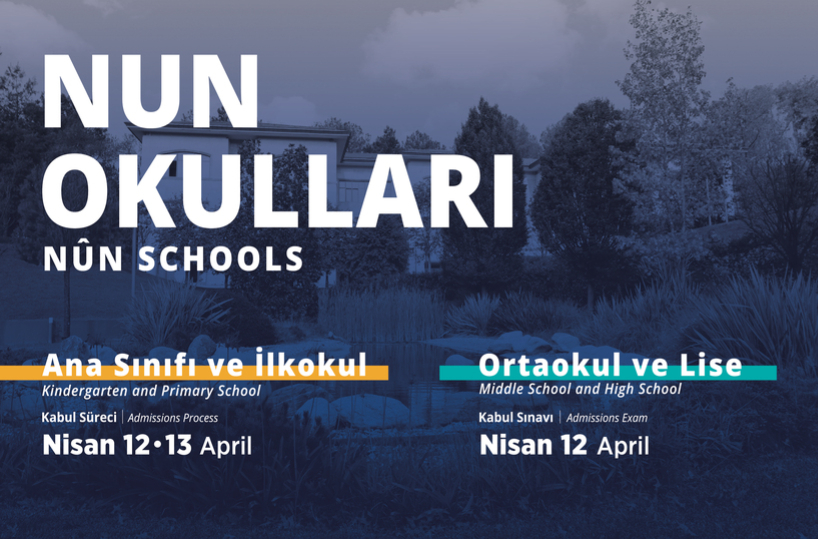
NÛN Schools student admission process has started!
at nûn schools, students’ self-journey to be a “good person” is given equal importance as their ac...
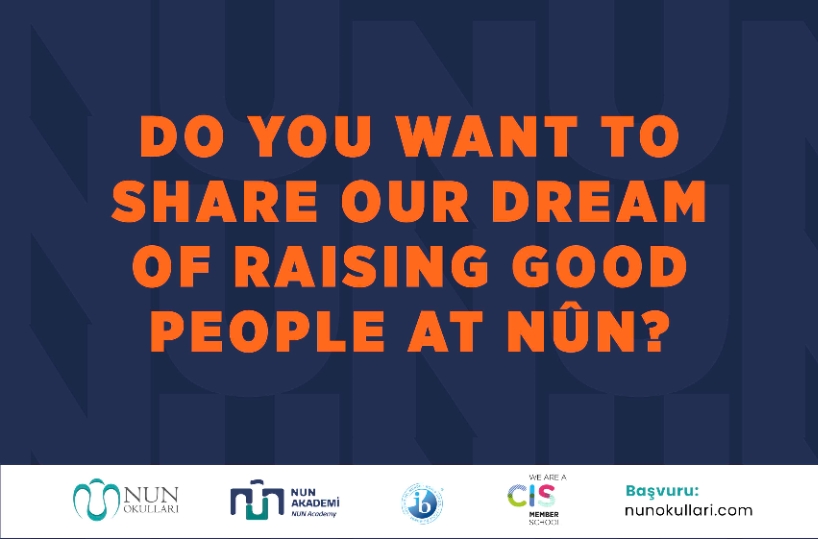
Do you want to share our dream of raising good people at NÛN?
at nûn schools, we embarked on a journey of imagination by envisioning courageous and spirited you...
Education with Nature, Not Despite Nature
Education with Nature, Not Despite Nature
With “Produce, don’t consume” philosophy, our schools internalized the limits of natural sources instead of infinite sources.
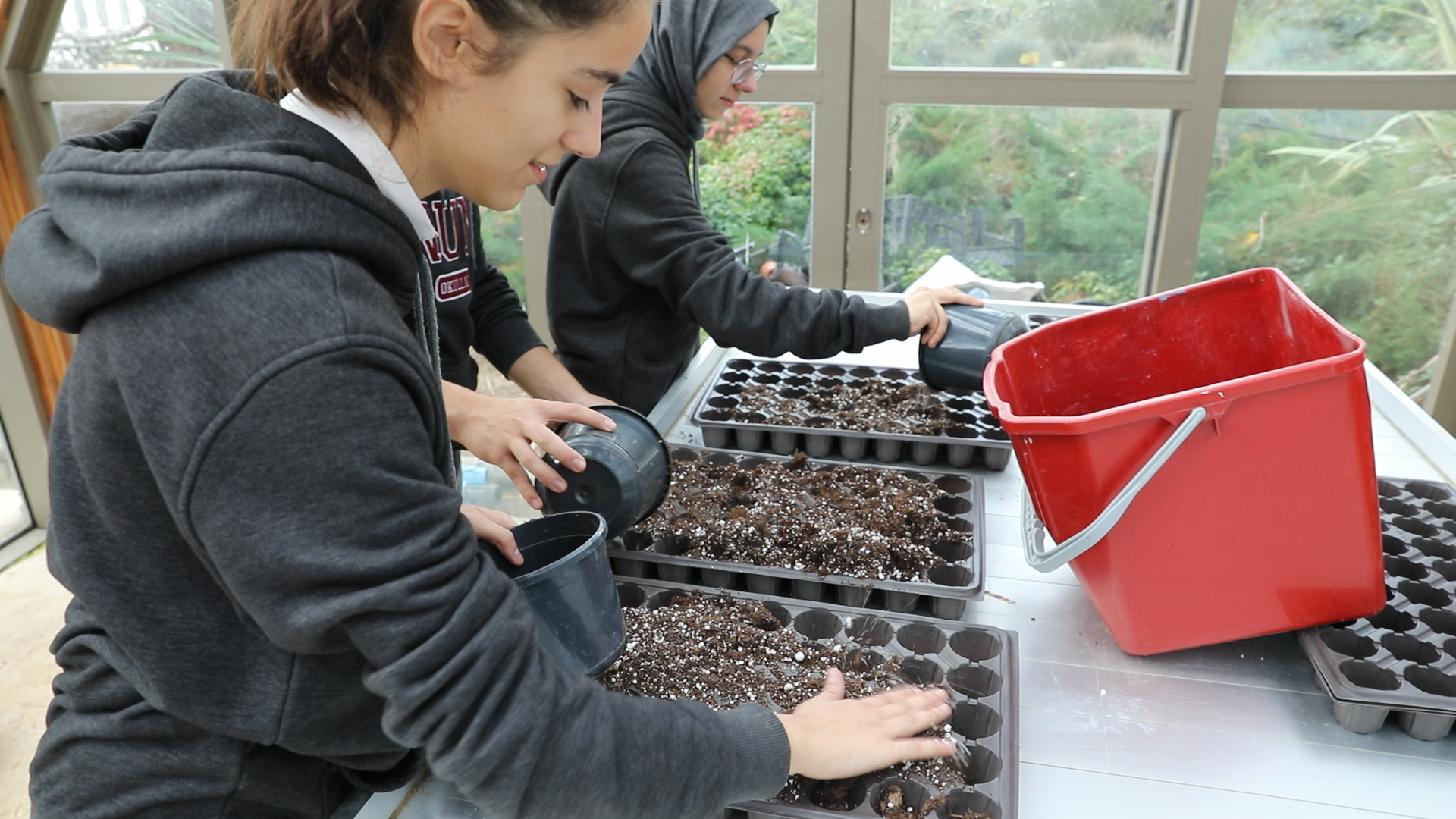
This philosophy and internalization has created its own ecosystem not only within the boundaries of the school but through individuals who are connected to the school. In our school, reusable products are preferred instead of disposable products. The use of plastics is rapidly reduced. This compost is obtained by composting biodegradable wastes and it is combined with natural materials such as perlite and cocopeat to obtain fertile potting soil.
Our school goes beyond the recycling of waste and is rapidly progressing towards becoming a “zero waste school”. Zero waste is much more than a formal procedure for us; it is considered and evaluated as a philosophy, method and principle in our school. “Effective and sustainable use of natural resources” is not a phenomenon that is handled theoretically and put on display as a trend. It is a humanitarian and conscientious instrument that lives, makes alive; is applied, implicit and integrated into the formal curriculum; has a place in everyone’s minds and hearts as a main responsibility. The things we do for the effective and sustainable use of nature and natural resources are as follows:
- Identification of valuable trees and plants by exploring the local vegetation. At this point;
- Linden harvest,
- Daphne harvest,
- Chestnut harvest,
- Blackberry harvest
- Plum harvest,
- Tutsan harvest
- Arbutus harvest
- Medlar harvest
- Cranberry harvest
- Rosehip harvest
- Thyme, rosemary and lavender harvest
- Fermentation workshops both for the evaluation of natural and local products and for healthy food production;
- Making hawthorn, arbutus, apple and orange vinegar
- Making aromatic cleaning vinegar from fruit peels
- Making probiotic yogurt
- Making probiotic Turkish style pickles,
- Making probiotic German pickles
- Making Turnip juice
- Making Beet kvass
- Making Oxymel
- Making Winter syrup
- Soil construction with high water reserve and ventilation: By combining the compost we obtain from biodegradable wastes with cocopeat and perlite, we obtain a high quality potting soil. We use remaining compost to enrich the soil of our vegetable garden.
- By participating in physical and virtual seed barter activities, we supply ancestral (atalık) seeds. We now have about 20,000 seeds of 100 species in our ancestral seed banks.
- We are trying to complete our “food forest” project by getting sapling donations from different regions of Anatolia.
- We planted 160 grape vines of 4 types. We expect the conversion of vines to fruit with a success rate of around 60%.
- The laurel branches that emerged with the laurel pruning processes were turned into vines and over 1000 laurel vines are rooting.
- About 2 kg of bay leaves were dried and most of them are reserved to be used as spices and some for incense.
- 10 kg of bay seeds are collected and stored in olive oil for long-term preservation.
- 50 natural bamboo room fragrances were made from natural plant oils.
All these plans and actions allow our students to recognize and internalize natural life. We will take action based on “self-sufficiency” philosophy and diversify our projects in the years to come, taking courage from what we have actualized in the past years.